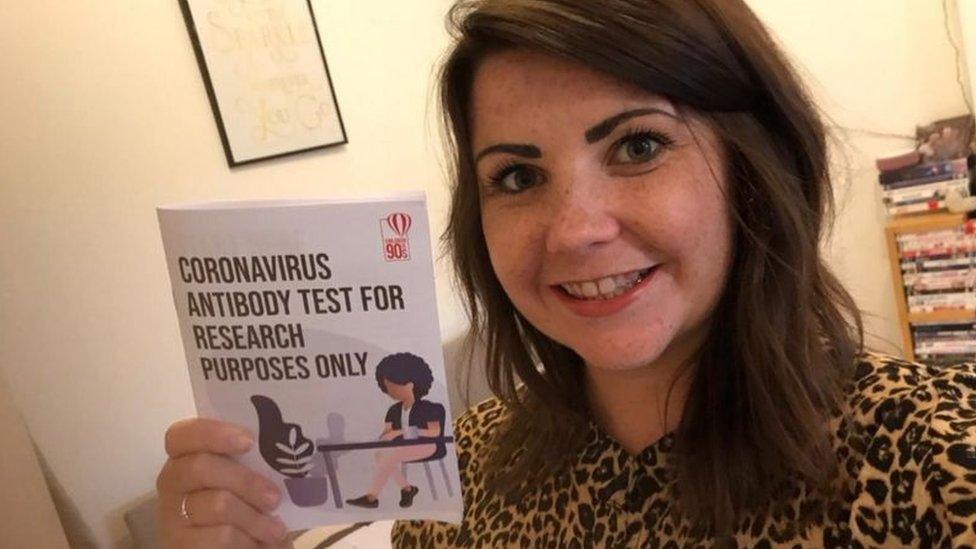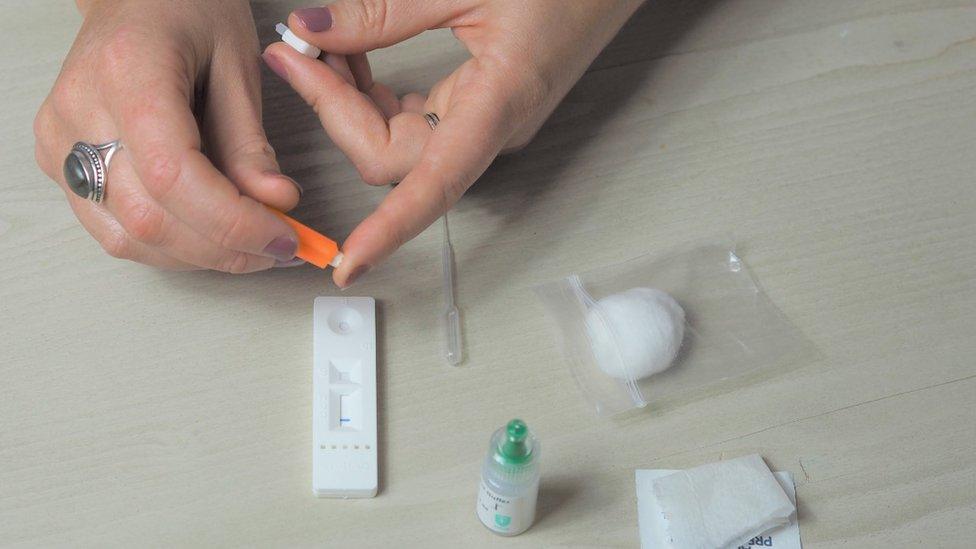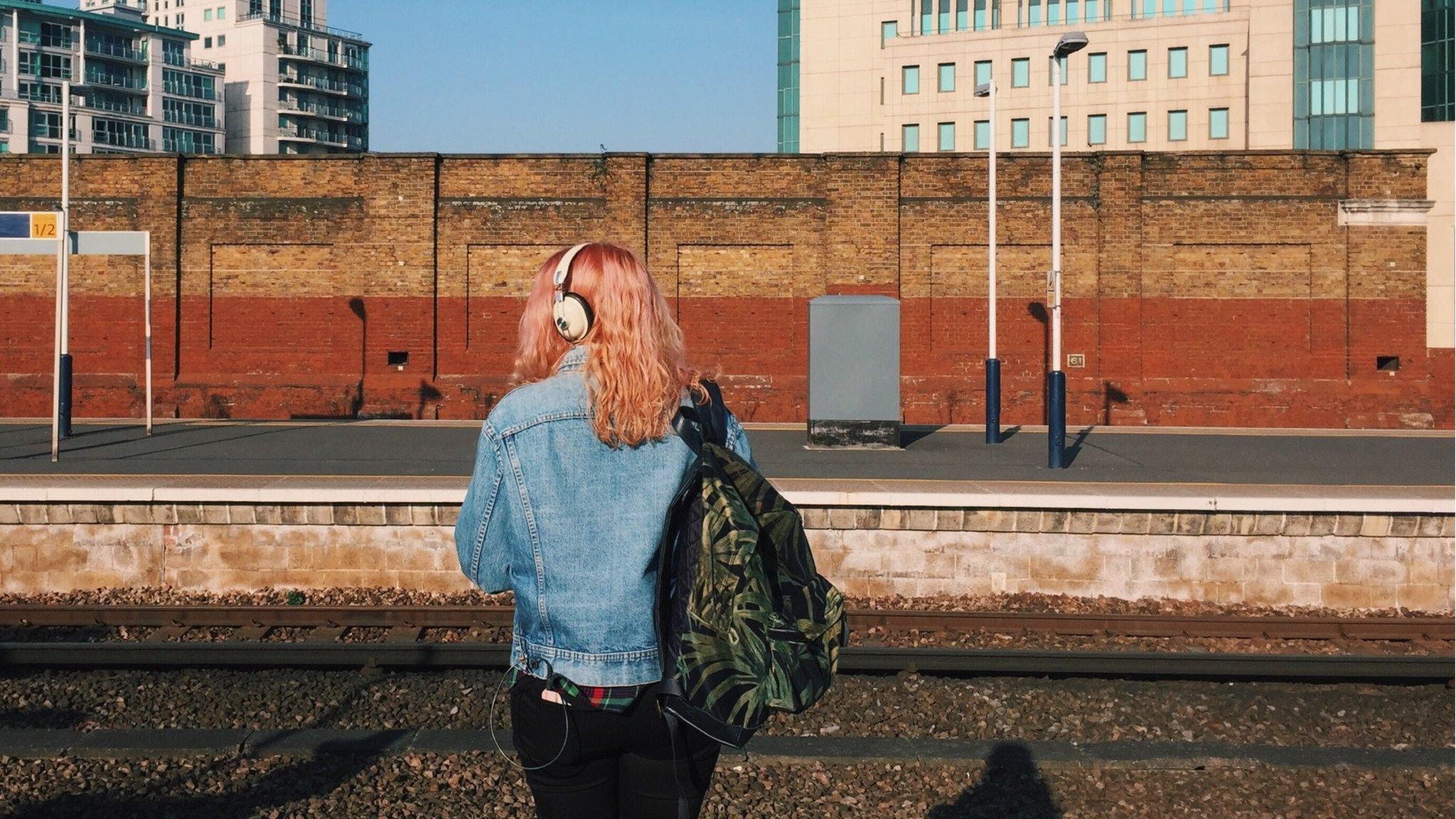'Children of the 90s' study highlights wider Covid transmission in young
- Published

Nicholas Timpson is a professor of genetic epidemiology at the University of Bristol
A study has highlighted how people born in the 1990s are twice as likely to have been infected with Covid-19 than their parents.
Nearly 5,000 participants in the University of Bristol's study returned antibody tests, which shows whether someone has recently had the virus.
About six percent of those aged about 30 tested positive, but only three percent of parents did.
Of those who tested positive, a quarter said they had no coronavirus symptoms.
Prof Nicholas Timpson said the study will aid understanding of what happens to the immune system after Covid-19.
The research was undertaken as part of Bristol University's Children of the 90s study, which has been given permission by the government to carry out additional tests on those who displayed antibodies in their tests.

Charly Andrews is one of the participants in the project
Prof Timpson said that "asymptomatic presentation" that was identified in the study was to be analysed further.
"We all know Covid can move very swiftly through the population and that would happen more often in those who don't know they've been infected," he said.
"We're now using the new data from these tests to design the next stage and understand what happens after the infection.
"That's everything from hallmarks of long Covid, breathlessness and what happens to our immune system," he said.
Around 300 participants will take part in the next stage of the study which will also aim to get a better understanding of how long immunity lasts.
- Published7 October 2020

- Published11 November 2020

- Published26 January 2022
